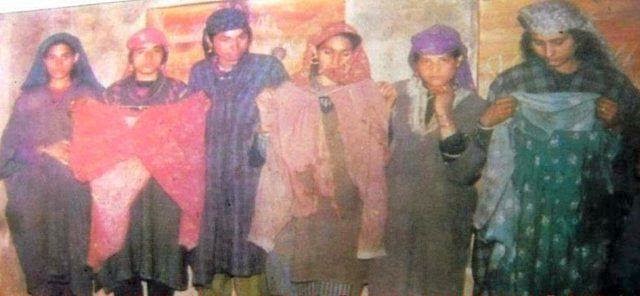 Justice Delayed is Justice Denied
Justice Delayed is Justice Denied
The Kunan Poshspora incident occurred on February 23, 1991, when units of the Indian army launched a search and interrogation operation in the village of Kunan Poshpora, located in Kashmir’s remote Kupwara District. At least 53 women were allegedly gang raped by soldiers that night. However, Human Rights organizations including Human Rights Watch have reported that the number of raped women could be as high as 100.
Although the Indian government′s investigations into the incident rejected the allegations as “baseless, international human rights organizations have expressed serious doubts about the integrity of these investigations and the manner in which they were conducted, stating that the Indian government launched a “campaign to acquit the army of charges of human rights violations and discredit those who brought the charges.
Following the district magistrate’s report, increased publicity about the incident led to strong denials from Indian military officials. On March 17, Mufti Baha-ud-Din Farooqi, Chief Justice of the High Court of Jammu and Kashmir, led a fact-finding mission to Kunan Poshpora. Over the course of his investigation, he interviewed fifty-three women who claimed to have been raped by the soldiers, and tried to determine why a police investigation into the incident had never taken place. According to his report, villagers claimed that a police investigation into the event had never commenced because the officer assigned to the case, Assistant Superintendent Dilbaugh Singh, was on leave. Farooqi later stated that in his 43 years on the bench he “had never seen a case in which normal investigative procedures were ignored as they were in this one.” Just a few months later, in July, 1991, Dilbaugh Singh was transferred to another station without ever having started the investigation.
On March 18, divisional commissioner Wajahat Habibullah visited the village, and filed a confidential report, parts of which were later released to the public. He concluded:
“While the veracity of the complaint is highly doubtful, it still needs to be determined why such complaint was made at all. The people of the village are simple folk and by the Army’s own admission have been generally helpful and even careful of security of the Army’s officers… Unlike Brig. Sharma I found many of the village women genuinely angry … It is recommended that the level of investigation be upgraded to that of a gazetted police officer.
The team interviewed hospital officials who stated that one of the women who had been pregnant at the time of the incident had given birth to a child with a fractured arm just 4 days afterwards. She claimed that she had been kicked during the rapes; a pediatrician who visited the village as part of the Jammu and Kashmir People’s Basic Rights Committee, confirmed her story. The Press Council team claimed that the fetus had been injured during delivery. Medical examinations conducted on 32 of the women between March 15 and 21, nearly one month after the incident, confirmed that the women had wounds on their chests and abdomens, and that the hymens of three of the unmarried women had been torn. The team claimed that “such a delayed medical examination proves nothing” and that the medical findings were typical among villagers.
The United States Department of State, in its 1992 report on international human rights, rejected the Indian government’s conclusion, and determined that there was “was credible evidence to support charges that an elite army unit engaged in mass rape in the Kashmiri village of Kunan Poshpora.” Outraged over the government’s handling of the situation, divisional commissioner Wajahat Habibullah immediately resigned, and asked for early retirement from the Indian Administrative Service.

